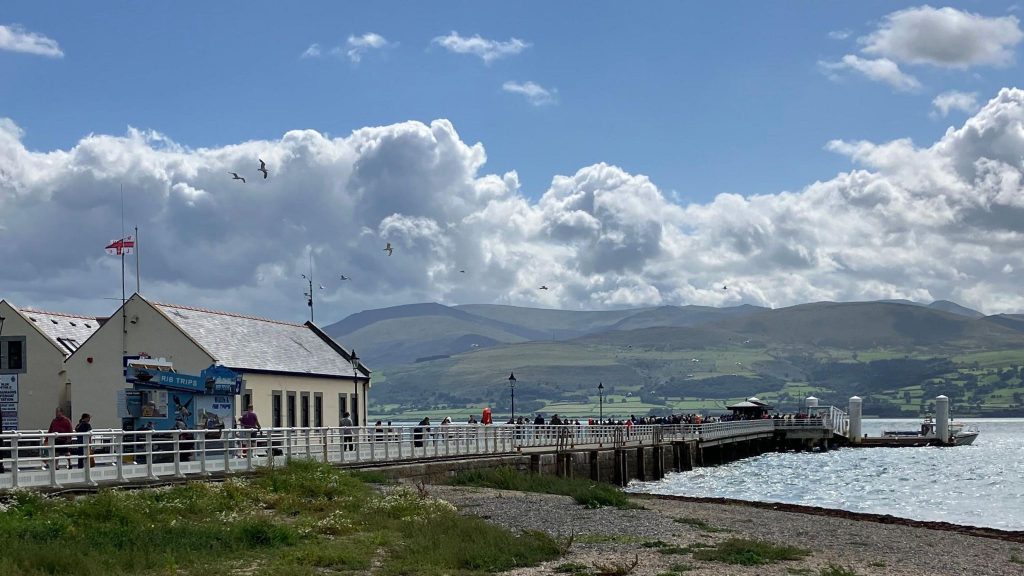Can Wales Manage the Impact of Increasing Tourism?
3 min read

In recent years, European cities like Barcelona, Majorca, and Venice have seen protests against mass tourism, as residents argue that the influx of visitors is disrupting their lives and damaging their communities. This issue, known as “over-tourism,” has sparked debates across the continent. With climate change pushing more travelers to seek cooler destinations, places like Wales are seeing an increase in tourist numbers, which raises concerns about whether they too might face similar issues.
A European Commission study suggests that global temperature rises of 3-4°C could lead to a 16% increase in visitors to west Wales. While this is seen as a potential economic boon, it also raises questions about whether Wales could experience the same over-tourism problems that have affected other regions. Linda Osti, a senior lecturer in tourism management at Bangor University, warns that Wales could indeed face over-tourism if current trends continue. However, she emphasizes that the key to preventing conflicts between locals and visitors is to develop solutions that benefit both groups. “There is no sustainable or regenerative tourism without host communities,” she states, highlighting the need for cooperation and shared benefits.
The term “over-tourism” first emerged in 2016, describing the situation in Iceland where rapid increases in international tourism led to local resentment. Osti hopes Wales can avoid reaching such a critical point by addressing the issue proactively. Building trust among stakeholders and ensuring tolerance between locals and tourists are essential steps in managing the impact of tourism.
Welsh tourism is already experiencing growth, with Visit Wales reporting a significant increase in German visitors between 2022 and 2023. Additionally, the number of cruise ships visiting Wales has risen by 25% from the previous year. This surge is partly driven by travelers from warmer climates seeking respite from extreme heat. For example, families from Paris and Nantes have visited north Wales to escape the sweltering temperatures in their home countries. Tourists have praised the region for its pleasant climate and beautiful landscapes, which they find more comfortable compared to the heatwaves they face at home.
Phil Scott from Ribride, a tour boat company operating on the Menai Strait, suggests that spreading tourist visits across the year, especially during the shoulder season, could help alleviate pressure on peak periods. Attracting visitors during less busy times and targeting different demographics, such as older couples, could balance the demand and reduce the strain on local resources.
 Anna Hume, who works at Ribride and grew up on Anglesey, echoes Scott’s sentiment. She notes that extending the tourist season could create year-round employment opportunities for young people. Currently, many young residents leave the area due to limited job prospects and high housing costs, exacerbated by the seasonal nature of tourism jobs.
Anna Hume, who works at Ribride and grew up on Anglesey, echoes Scott’s sentiment. She notes that extending the tourist season could create year-round employment opportunities for young people. Currently, many young residents leave the area due to limited job prospects and high housing costs, exacerbated by the seasonal nature of tourism jobs.
Recent frustrations over visitor numbers have already surfaced in Wales. The popularity of Llanddwyn Beach on Anglesey, boosted by its appearance in HBO’s “House of the Dragon,” led to traffic congestion and local discontent. Neville Evans, a councillor responsible for leisure, tourism, and maritime affairs in the area, suggests redirecting visitors to less frequented locations. By promoting lesser-known destinations, Wales could spread the economic benefits of tourism more evenly and avoid overburdening popular spots.
In summary, while Wales stands to benefit from an increase in tourism due to climate change and shifting travel patterns, careful management is crucial to prevent potential over-tourism issues. By fostering cooperation between locals and visitors, spreading tourist activity throughout the year, and promoting lesser-known areas, Wales can aim to balance the economic advantages of tourism with the needs and well-being of its communities.